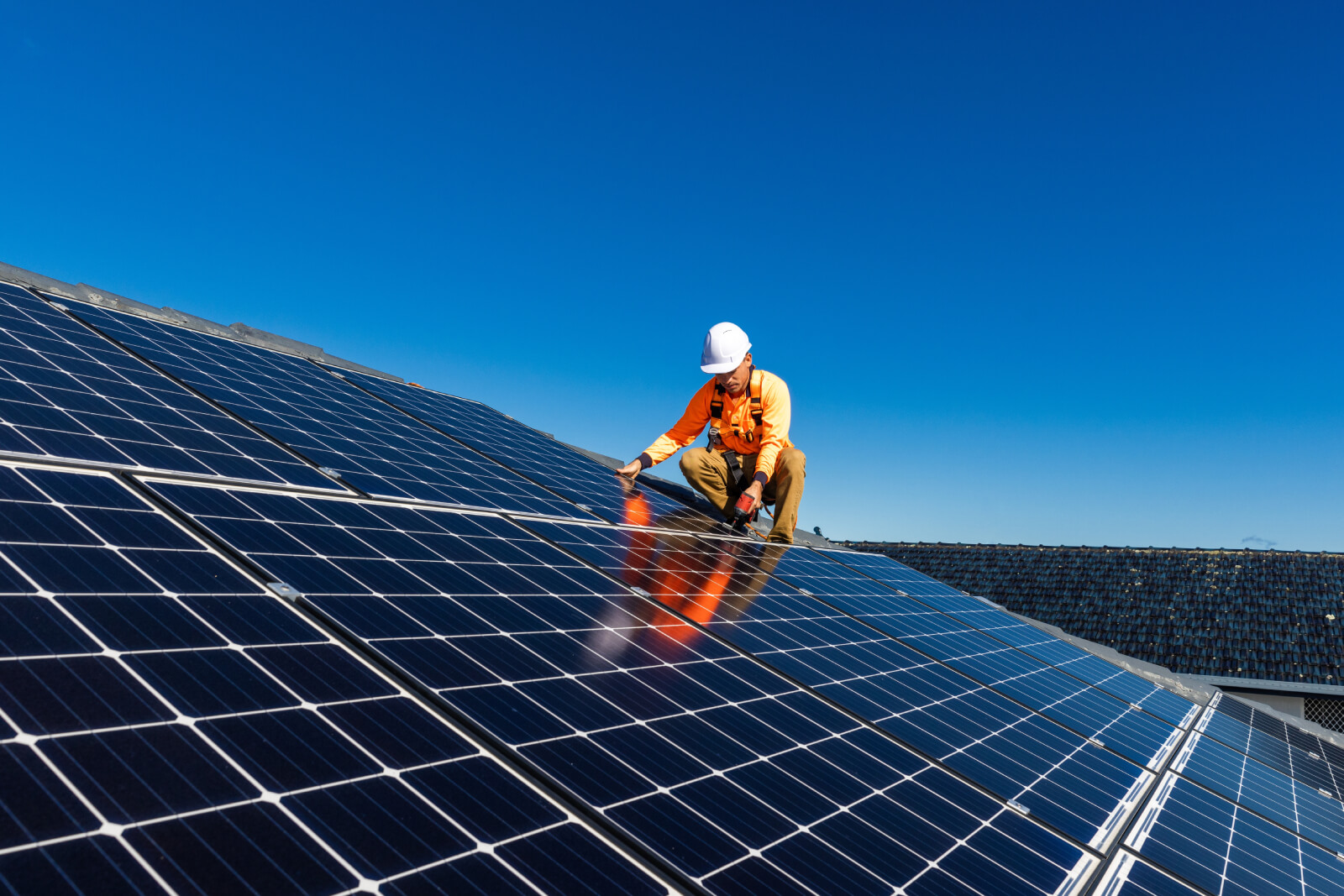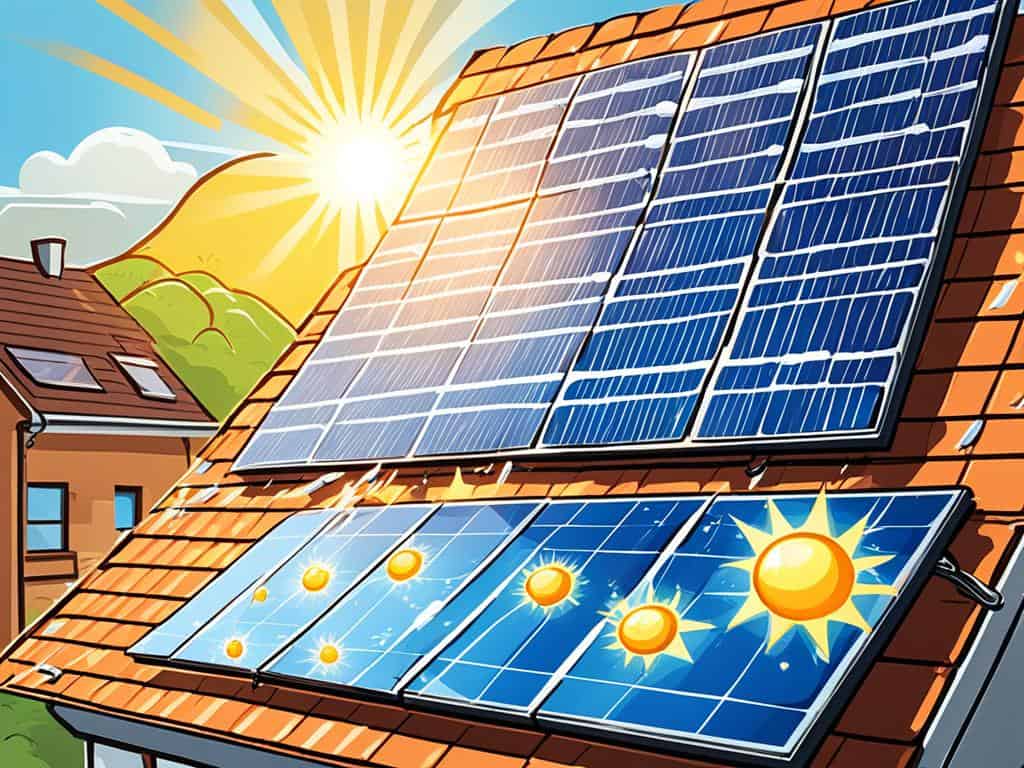Why Solar Panels Are the Smartest Investment for Your Future
Purchasing solar panels represents a calculated choice that can produce significant economic and ecological returns in the future. As energy costs remain to intensify, the ability to create your own electrical energy not only mitigates these expenditures yet also boosts the worth of your home. Furthermore, federal government motivations and continuous technical advancements make solar energy significantly available. The implications of this financial investment expand past simple cost savings, motivating a deeper factor to consider of exactly how it straightens with both individual financial goals and broader sustainability efforts. What elements should be evaluated prior to making such an essential choice?
Financial Financial Savings on Energy Costs
Among one of the most engaging advantages of purchasing photovoltaic panels is the significant economic savings they offer on energy costs. By using power from the sunlight, home owners can lower their dependence on conventional electrical power sources, leading to lower regular monthly energy costs. As power prices proceed to rise, the capacity for conserving money ends up being significantly attractive.
Photovoltaic panel convert sunlight right into power, which can power homes directly, reducing the quantity of power purchased from utility companies. In time, these cost savings can gather considerably, typically covering the first investment in solar innovation within a few years. In addition, numerous areas supply incentives, such as tax credit reports and discounts, which can enhance economic returns on solar financial investments.
Along with route financial savings, solar power production can provide a bush against future energy cost changes. With a mounted solar system, homeowners can secure their energy prices, decreasing the changability linked with traditional energy rates. The mix of prompt financial savings and lasting economic stability makes photovoltaic panels a strategic investment for those aiming to maximize their house spending plans while adding to a lasting future.
Increase in Building Value
Buying solar panels not only brings about prompt financial savings on energy bills yet additionally substantially improves residential property worth. As the need for sustainable living grows, possible property buyers are progressively looking for energy-efficient residential or commercial properties. Solar panels stand for a forward-thinking investment that aligns with contemporary environmental consciousness, making homes outfitted with this modern technology extra attractive in the actual estate market.

Furthermore, homes with solar installations tend to offer much faster, as purchasers recognize the long-term financial savings and benefits related to renewable resource. This fad is specifically obvious in regions where solar motivations and rebates are available, more enhancing the general value recommendation. As a result, purchasing photovoltaic panels not only yields immediate financial savings yet additionally acts as a tactical action to enhance building worth, making it a sensible choice for property owners looking to maximize their financial investment.
Protection Against Increasing Energy Prices
Protecting homeowners from the unpredictability of increasing power costs, solar panels offer a dependable source of renewable power that can significantly reduce expenses over time. As utility rates continue to increase, several households face the burden of increasing monthly bills, which can stress budget plans and financial preparation. By spending in solar power, property owners can gain greater control over their power expenditures and lower their dependence on conventional source of power.
The installment of photovoltaic panels allows homeowners to create their own electrical power, commonly leading to substantial financial savings on energy bills. Lots of regions supply rewards, such as tax credit ratings and refunds, additionally boosting the economic benefits of going solar. In addition, as utility firms boost their rates, the price of solar power remains steady, supplying predictability in power expenses.
Additionally, solar panels can develop a buffer versus inflationary pressures in the energy market. By securing in energy prices with a solar financial investment, property owners effectively shield themselves from future price hikes, ensuring long-term savings. In significance, adopting solar innovation not just represents a smart financial choice yet also enhances power self-reliance, making it a critical option for the future.
Ecological Advantages of Solar Power
Along with the monetary benefits, solar energy also offers substantial environmental advantages that add to a lasting future. Among one of the most significant benefits is the decrease of greenhouse gas emissions. By harnessing solar power, houses and businesses can substantially lower their dependence on fossil gas, which are the key contributors to climate change. This shift not only reduces carbon dioxide exhausts but additionally mitigates air pollution, resulting in improved public wellness outcomes.
Moreover, solar power promotes water conservation. Conventional energy sources often visit this site require substantial quantities of water for cooling down processes, whereas solar panels operate with marginal water use. This performance is vital in areas susceptible to drought and water scarcity.
In addition, the deployment of solar panels can result in habitat preservation. Solar Panels. By using rooftops and brownfield sites for solar setups, we lower the need for substantial land growth that threatens all-natural environments
Technological Innovations and Rewards

Along with technological progression, numerous economic rewards are playing a crucial duty in promoting solar energy fostering. Federal tax obligation credit reports, state refunds, and net metering plans provide considerable cost savings for those that purchase solar panels. why not try these out As an example, the Federal Investment Tax Obligation Credit Score (ITC) permits home owners to subtract a significant percentage of installment prices from their tax obligations, even more decreasing the financial barrier to entry. As states remain to implement renewable resource requireds and neighborhood incentives, the economic stability of solar power comes to be significantly appealing.
With each other, these advancements and rewards are positioning solar power as not only a sustainable selection but likewise an economically prudent investment for the future, leading the way for a cleaner, extra energy-efficient world.
Conclusion
